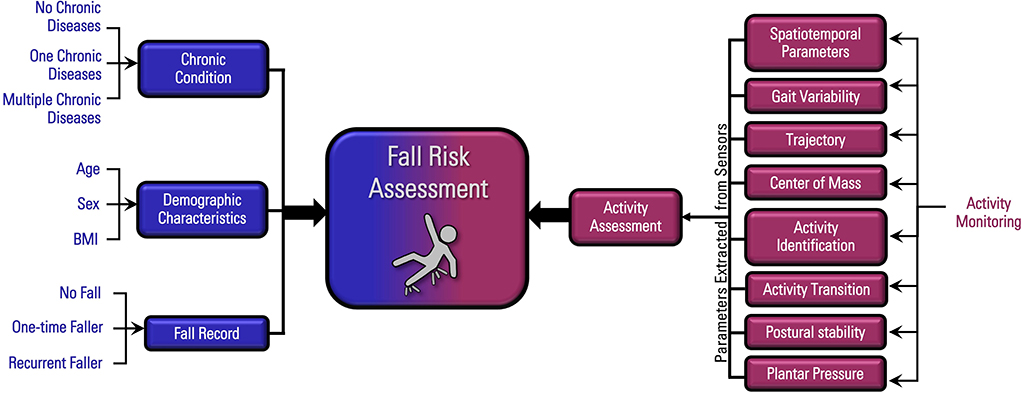The Ultimate Guide To Dementia Fall Risk
Table of ContentsWhat Does Dementia Fall Risk Mean?Rumored Buzz on Dementia Fall RiskThe Only Guide to Dementia Fall RiskMore About Dementia Fall RiskThe Buzz on Dementia Fall Risk
Assessing loss threat assists the whole medical care group create a much safer setting for each patient. Ensure that there is a designated location in your medical charting system where personnel can document/reference ratings and record appropriate notes connected to fall prevention. The Johns Hopkins Autumn Danger Evaluation Tool is among many tools your team can make use of to assist protect against negative clinical events.Person falls in health centers are common and devastating unfavorable events that persist regardless of years of initiative to decrease them. Improving communication across the evaluating registered nurse, treatment group, client, and person's most involved buddies and family may enhance fall avoidance initiatives. A team at Brigham and Women's Healthcare facility in Boston, Massachusetts, sought to establish a standard fall prevention program that centered around improved communication and individual and family engagement.

The development team highlighted that successful implementation relies on person and team buy-in, integration of the program right into existing operations, and integrity to program processes. The team noted that they are grappling with just how to make sure continuity in program application throughout periods of dilemma. During the COVID-19 pandemic, as an example, a rise in inpatient falls was connected with constraints in individual involvement along with restrictions on visitation.
Not known Factual Statements About Dementia Fall Risk
These incidents are typically thought about avoidable. To implement the intervention, organizations need the following: Access to Fall TIPS sources Loss pointers training and retraining for nursing and non-nursing team, consisting of new registered nurses Nursing operations that permit person and family involvement to carry out the drops assessment, guarantee use the avoidance plan, and carry out patient-level audits.
The outcomes can be extremely detrimental, often speeding up person decrease and creating longer hospital stays. One study estimated keeps raised an additional 12 in-patient days after a person autumn. The Autumn TIPS Program is based on interesting patients and their family/loved ones throughout three main processes: analysis, customized preventative interventions, and auditing to guarantee that clients are involved in the three-step autumn avoidance procedure.
The individual analysis is based on the Morse Fall Range, which is a validated autumn risk evaluation device for in-patient medical facility settings. The range includes the six most usual reasons clients in medical facilities drop: the patient autumn history, risky problems (consisting of polypharmacy), use of IVs and various other exterior devices, psychological standing, stride, and movement.
Each danger variable web links with several actionable evidence-based treatments. The nurse develops a strategy that integrates the interventions and shows up to the care team, person, and household on a laminated poster or printed visual help. Registered nurses establish the strategy while consulting with the patient and the patient's family.
Our Dementia Fall Risk Diaries
The poster serves as browse around this web-site a communication tool with various other participants of the person's treatment team. Dementia Fall Risk. The audit element of the program includes assessing the client's understanding of their danger elements and avoidance strategy at the unit and health center levels. Nurse champions conduct at least five individual interviews a month with individuals and their family members to look for understanding of the fall avoidance strategy

A projected 30% of these falls cause injuries, which can range in seriousness. Unlike various other negative events that require a standardized scientific feedback, autumn avoidance depends very on the requirements of the client. Including the input of individuals who recognize the patient best enables higher personalization. This strategy has actually shown to be much more reliable than autumn prevention programs that are based largely on the manufacturing of a threat score and/or are not customizable.
Dementia Fall Risk - The Facts

Based upon auditing results, one site had 86% conformity and 2 websites their explanation had more than 95% conformity. A cost-benefit analysis of the Loss suggestions program in 8 medical facilities approximated that the program expense index $0.88 per client to carry out and led to savings of $8,500 per 1000 patient-days in straight expenses related to the prevention of 567 tips over 3 years and eight months.
According to the advancement team, organizations thinking about applying the program ought to conduct a preparedness evaluation and falls avoidance voids analysis. 8 Additionally, companies should ensure the necessary facilities and operations for implementation and establish an application plan. If one exists, the organization's Fall Avoidance Job Force should be associated with planning.
The smart Trick of Dementia Fall Risk That Nobody is Talking About
To begin, organizations must guarantee completion of training components by nurses and nursing aides - Dementia Fall Risk. Medical facility team must analyze, based on the requirements of a medical facility, whether to use a digital health and wellness record printout or paper variation of the loss prevention strategy. Carrying out groups must recruit and train registered nurse champs and develop processes for bookkeeping and reporting on autumn information
Staff require to be associated with the procedure of redesigning the workflow to engage individuals and family members in the assessment and prevention strategy procedure. Equipment must be in location to make sure that units can comprehend why a fall occurred and remediate the cause. Extra specifically, registered nurses ought to have channels to supply recurring feedback to both staff and unit leadership so they can change and boost loss prevention workflows and communicate systemic issues.